Just Sustainability: Jesuit & Broader Networks Discern a Call to Action | Update #2
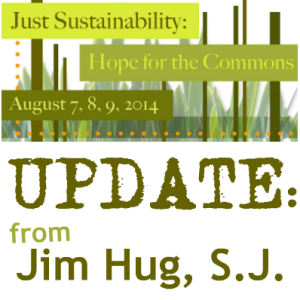 The following is one in a series of updates that Jim Hug, S.J. is providing from the Just Sustainability: Hope for the Commons Conference at Seattle University from August 7-9, 2014.
The following is one in a series of updates that Jim Hug, S.J. is providing from the Just Sustainability: Hope for the Commons Conference at Seattle University from August 7-9, 2014.
Saturday’s program began with a panel discussion featuring a case study of the displacement by climate change and sea rise of Kivalina, a remote indigenous Alaska community. Six participants brought a variety of alternative perspectives on the present day displacement and migration processes already underway. It provided a good illustration of what it might mean to listen to indigenous peoples’ worldviews, values and perspectives. While there was no emerging consensus on solutions, there was a small taste of the diversity of worldviews yesterday’s first panel had encouraged us to embrace and explore.
Two sessions each offering four workshop options and a lunch speaker preceded the closing plenary. Materials from the workshops will be posted on the conference website. Keep an eye out there.
The lunch speaker, Dr. Jorge Huete from the Catholic University in Nicaragua, gave an eye-opening presentation on a new trans-oceanic canal to be built by China across Nicaragua. It is being pushed quickly through government processes that will both endanger rainforest and other precious ecological resources and serve as a larger canal for shipments of fossil fuels to China. Government requirements for environmental impact studies are being swept aside or entrusted to the company that will build the canal. Opponents to the canal such as Dr. Huete are trying to raise international awareness and resistance.
In the closing plenary session, David Korten previewed the argument of his forthcoming book, Change the Story, Change the Future: To Find Our Human Place of Service as Members of Earth’s Community of Life due to be published in early spring.
He identifies the current framing narrative for so much of contemporary life as a machine model organized in service to money and markets. He points out the overwhelming evidence of the failure of that story to provide a healthy and fulfilling life for all on the planet. He offers an alternative narrative in which life is central, a story rooted in community and ecology that is participatory and life supporting. The metaphor that captures its essence is not that of a machine winding down but of a seed giving birth to emerging and expanding life. A summary of the lines of his argument can be found in David’s article entitled It’s a “Story Problem”: What’s Behind Our Messed-Up Economy.
Pedro Walpole, S.J., picked up on the alternative story from a Jesuit background and highlighted the importance of a foundation in an appreciative spirituality in approaching all life. With an implicit nod to Pierre Teilhard de Chardin, he suggested that the next great challenge facing the human community is getting the emerging complexity of 9 billion people evolving a conscious self-organization in and through Earth’s natural feedback systems into a higher unity that will live sustainably and justly on and as an integral part of Earth and Cosmos.
The two plenary sessions today were video-recorded and will be available on the Conference website at a future time.
A few really significant challenges and “take-aways” valuable for all of us emerged through the 2-day conference. More on those in the next and final Update from the conference.
James E. Hug, S.J., has a long history working in social ethics and social justice advocacy in the Catholic community. He served 24 years as the President of the Center of Concern, a Washington, DC based social justice institute rooted in Catholic social tradition, working for greater economic, social, and ecological justice globally. He holds a doctoral degree in Christian ethics from the University of Chicago and a master’s degree in Christian spirituality from St. Louis University.
Fr. Hug’s research has focused on issues of faith and economic justice and he has lectured and directed workshops throughout the U.S. and in Europe, Asia, Africa, and Australia. Currently he serves as sacramental minister for the Adrian Dominican Sisters and writes on issues of spirituality for social transformation in these difficult times. His blog, “Truth that does Justice,” can be found on the website for the Dominican Center: Spirituality for Mission, www.dominicancenter.org.
Past publications have included Catholic Social Teaching: Our Best Kept Secret, Social Revelation: Profound Challenge for Christian Spirituality, and Tracing the Spirit: Communities, Social Action, and Theological Reflection. Jim has also written chapters for Globalization and Catholic Social Thought: Present Crisis, Future Hope and The Pastoral Circle Revisited: A Critical Quest for Truth and Transformation.
Fr. Hug’s research has focused on issues of faith and economic justice and her has lectured and directed workshops throughout the U.S. and in Europe, Asia, Africa and Australia. He was the editor of the Center of Concern’s “Catholic Social Teaching: Our Best Kept Secret, author of Social Revelation: Profound Challenge for Christian Spirituality,” and the editor of “Tracing the Spirit: Communities, Social Action, and Theological Reflection.” Jim has also written chapters for “Globalization and Catholic Social Thought: Present Crisis, Future Hope” and “The Pastoral Circle Revisited: A Critical Quest for Truth and Transformation.”

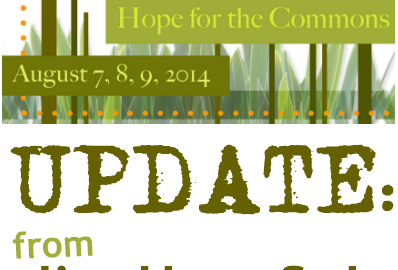
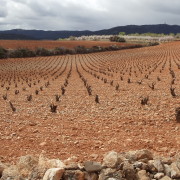

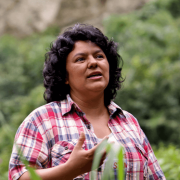
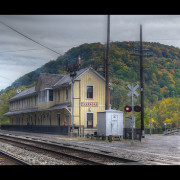
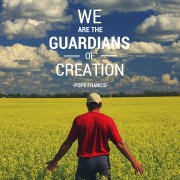




Leave a Reply
Want to join the discussion?Feel free to contribute!